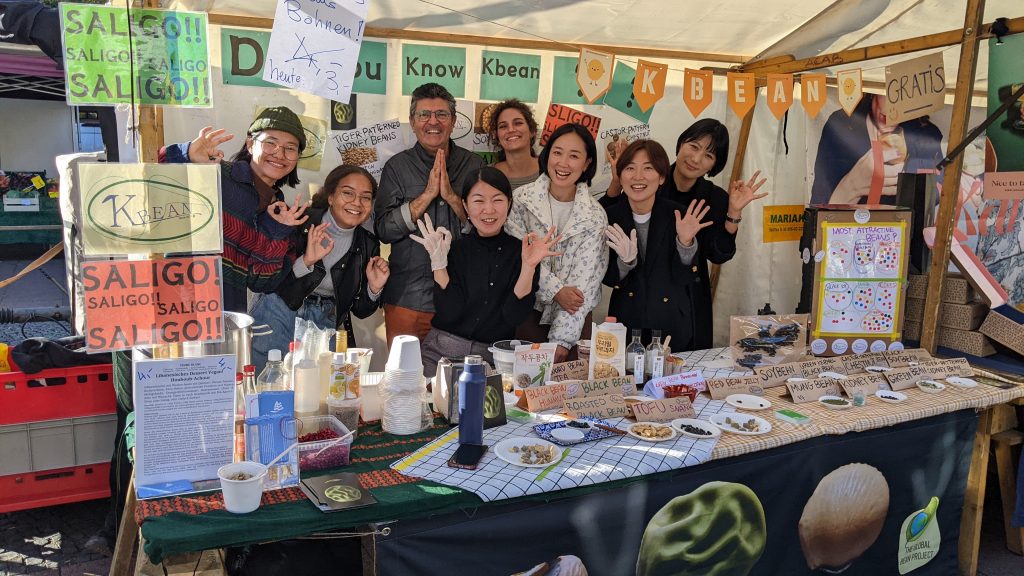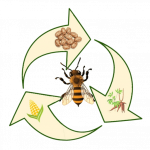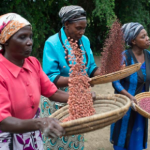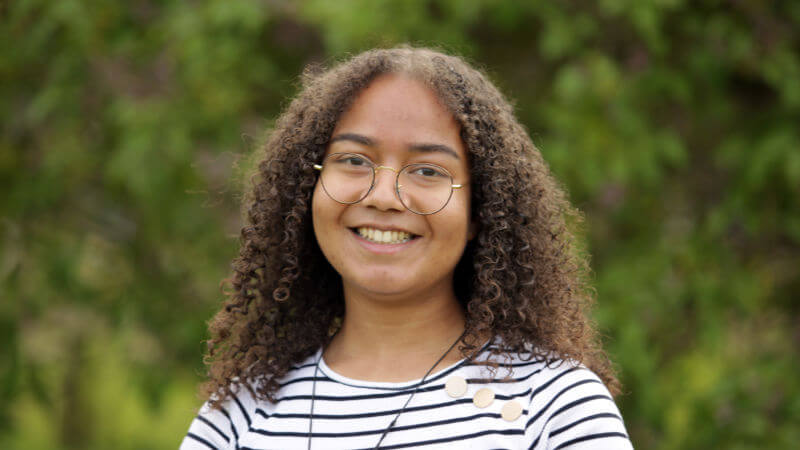On Thursday 20th, the Global Plot and Global bean teams were lucky to receive the KBean project form South Korea, arriving straight from the Netherlands to Berlin for a 3-day visit.

Day 1: Learning lunch
It is around a table, filled with Korean bean snacks – roasted beans, biscuits, tofu crackers with black sesame – that we got to hear more about the Kbean project and local Korean beans.
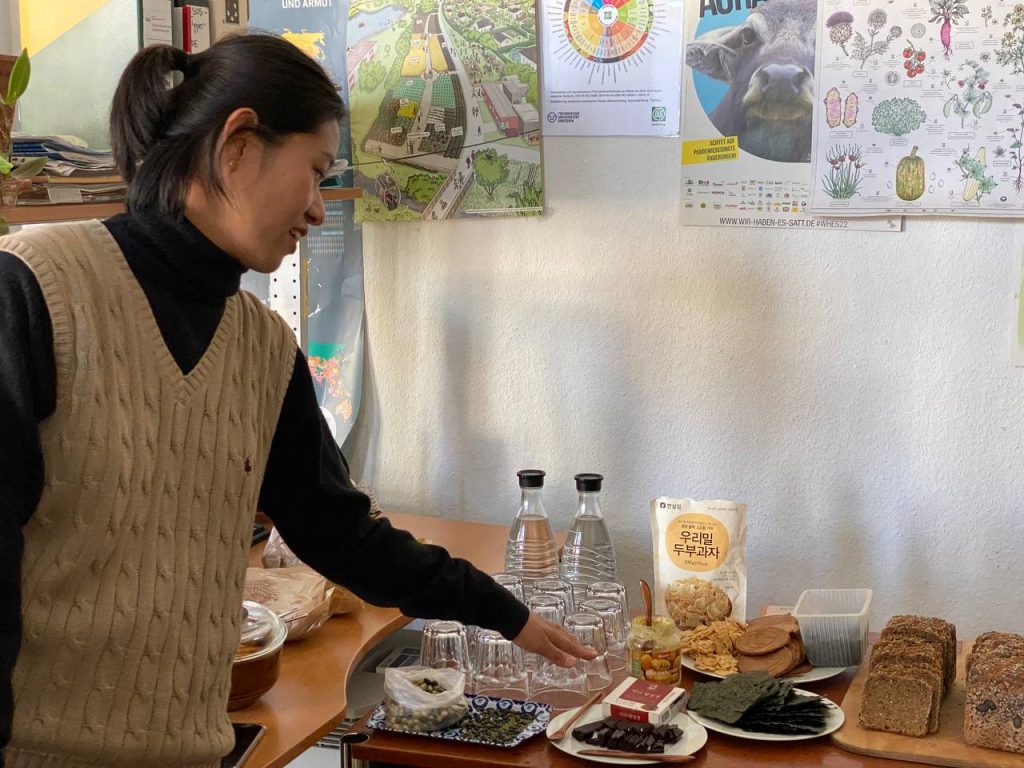
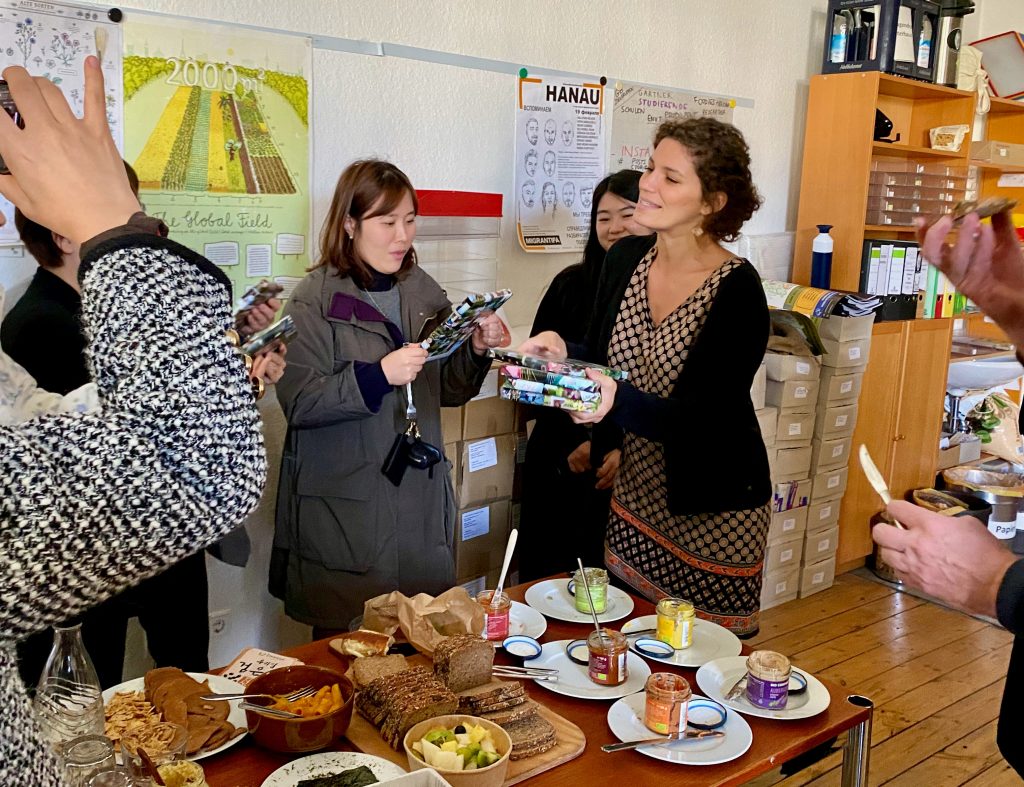
The story of the project starts with 7 Korean women – all leaders in the non-profit social economy sector – from very different backgrounds (organic co-op, culture, education, media…) coming together under the umbrella of the Hyundai foundation.
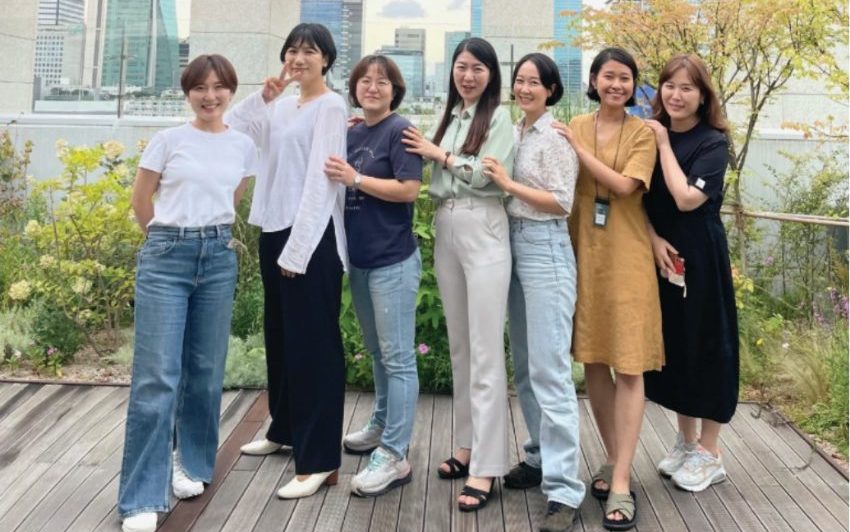
The interest in legumes (all called “kong” in korean, meaning “beans”) emerged from a few observations, some of which may ring familiar to you:
- Legumes are valuable as a source of plant-based protein, in the context of reducing meat consumption and creating a new food system that can respond to the climate crisis.
- 70% of legumes consumed in Korea are imported from abroad, from the US or China.
- Though they are also for human consumption, legumes are mostly used for feed.
- Korean bean producers struggle, as the price of local beans can be up to twice the one of imported beans.
Their response to this: “In order to respond to the climate crisis and to increase Korea’s food self-sufficiency within the food sovereignty approach, we believe that the production and consumption of Korean beans should be expanded.”
And thus, in May 2022, the Kbean project was launched.
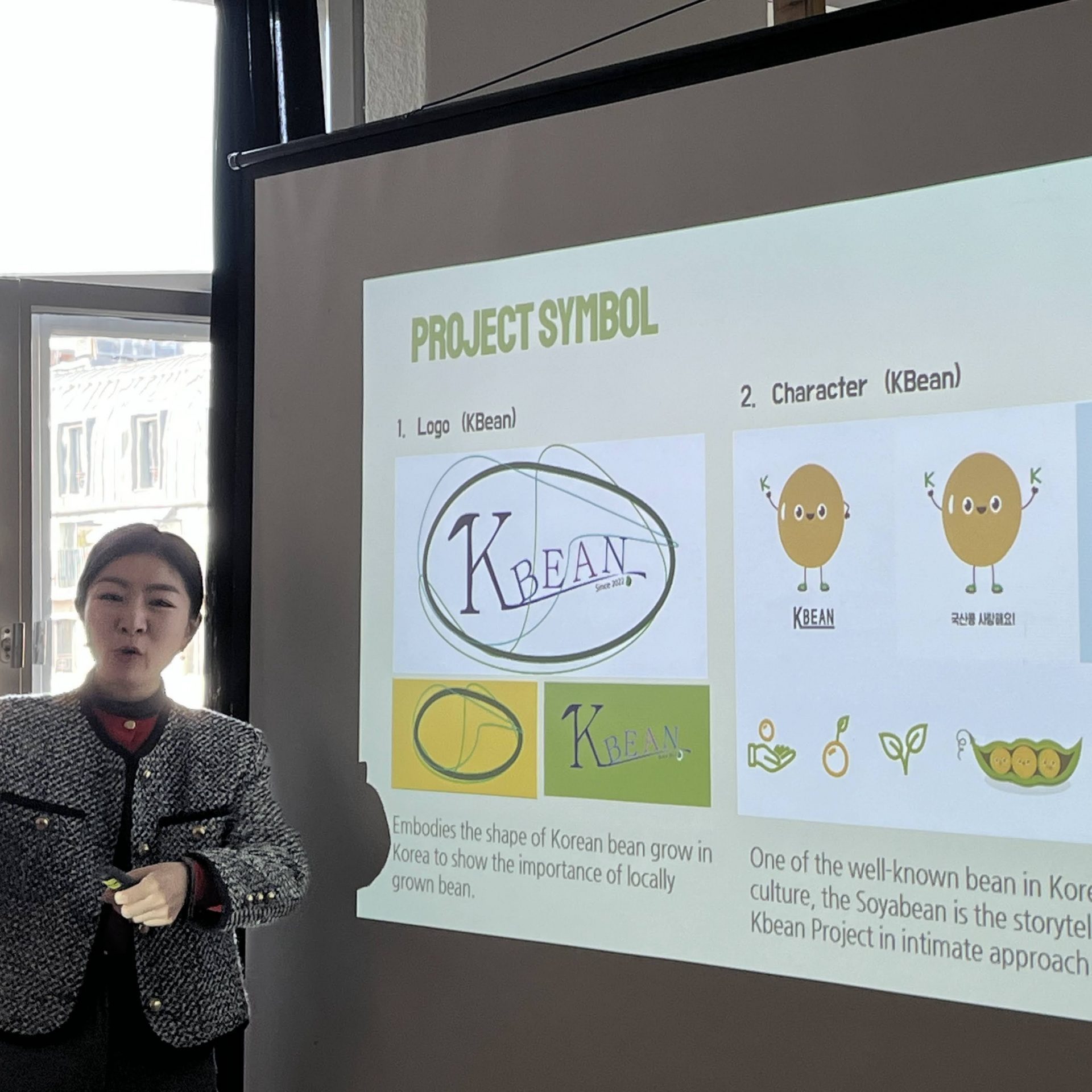
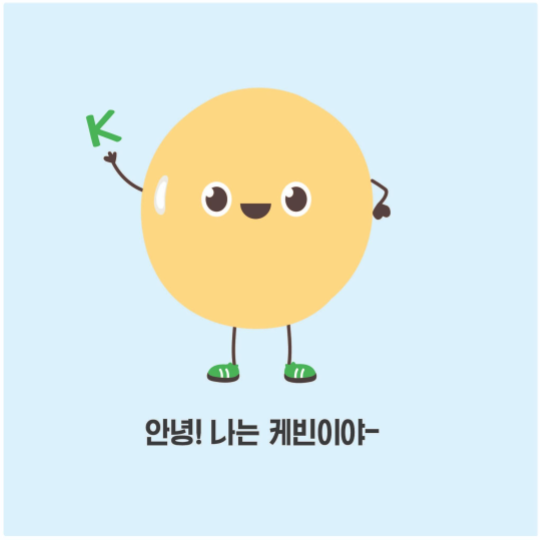
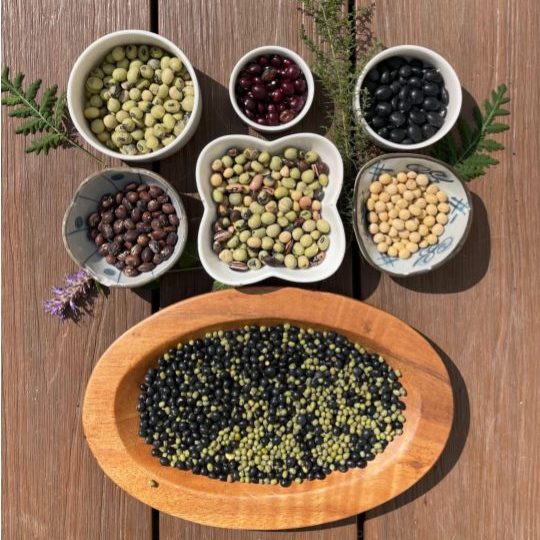
To this end, the team has set out to meet various people in person, including bean producers, processors, artisans, chefs, and more, invited to the “kong-ference” (bean- conference) on November 15th. This meeting aims to facilitate the exchange between consumers, producers, and other actors of the food value chain and pledge to work together for the further production and consumption of Korean beans.
Of the Team, Jiyoung – who held the presentation – also works for Hansalim, the biggest organic agriculture cooperative in the world, able to provide 1.5 million people with organic food.
“Farmers protect Consumers’ Life and Consumers ensure Farmers’ Livelihood”
(1987, Hansalim’s first newsletter)
Jiyoung also called this involved consumer a “co-producer”, term coined by the Slow Food movement.
And finally just like our Global Bean project, Kbean aims to become an info-hub on the topic of legumes, as well as collect experiences and examples of other countries that are already engaged in various activities on beans, to create an international network and promote local beans within global solidarity.
Welcome, to the Global Bean Network!
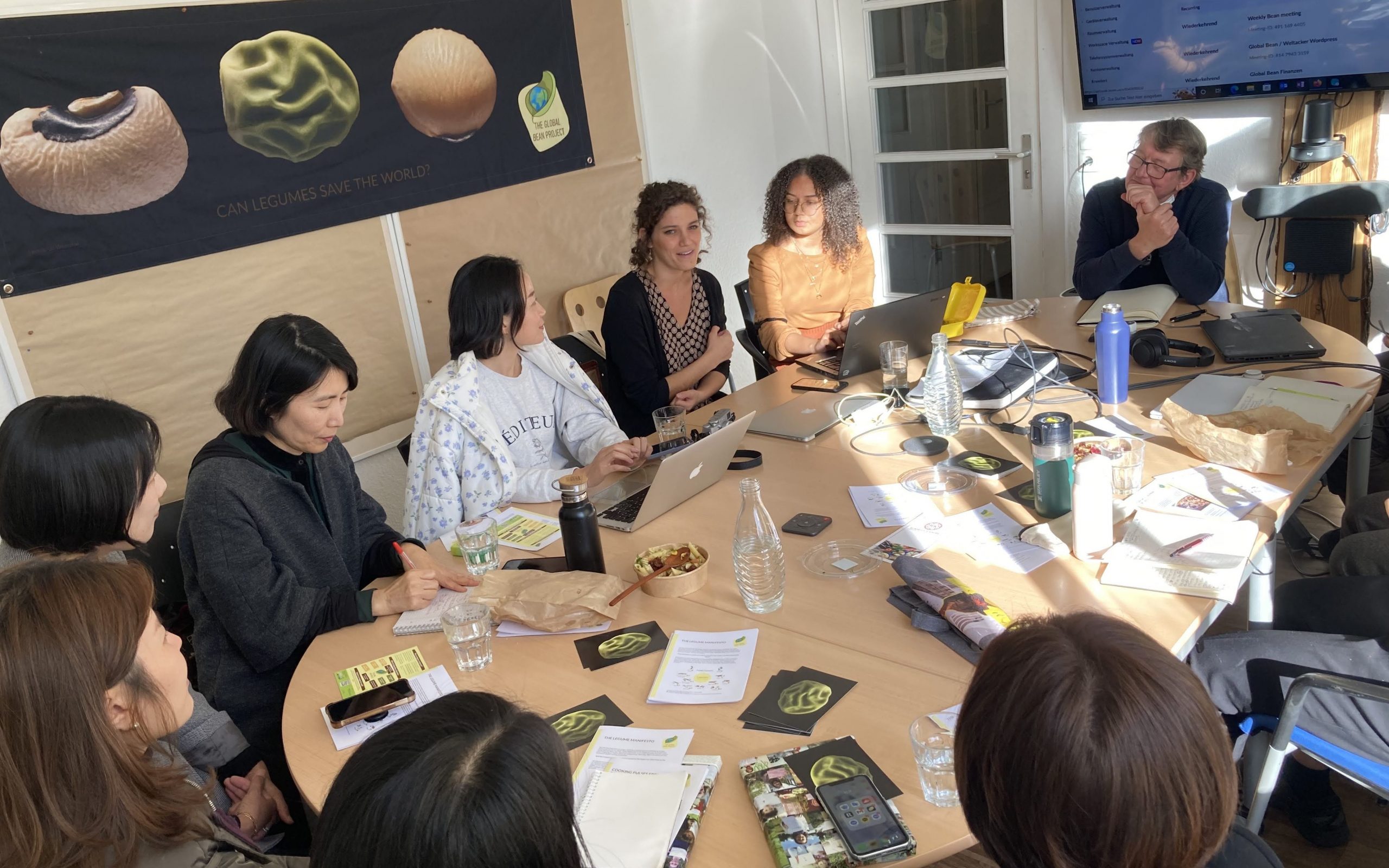
Day 2: A visit on the Global Field Berlin.
Program in the morning of the second day, was a visit to the Global Field Berlin, partner and organization that initiated the Global Bean Project. On 2000 m² – the arable cropland available per person in the world- are grown – in proportion – the most important global cultures, a very important one among them being soy.
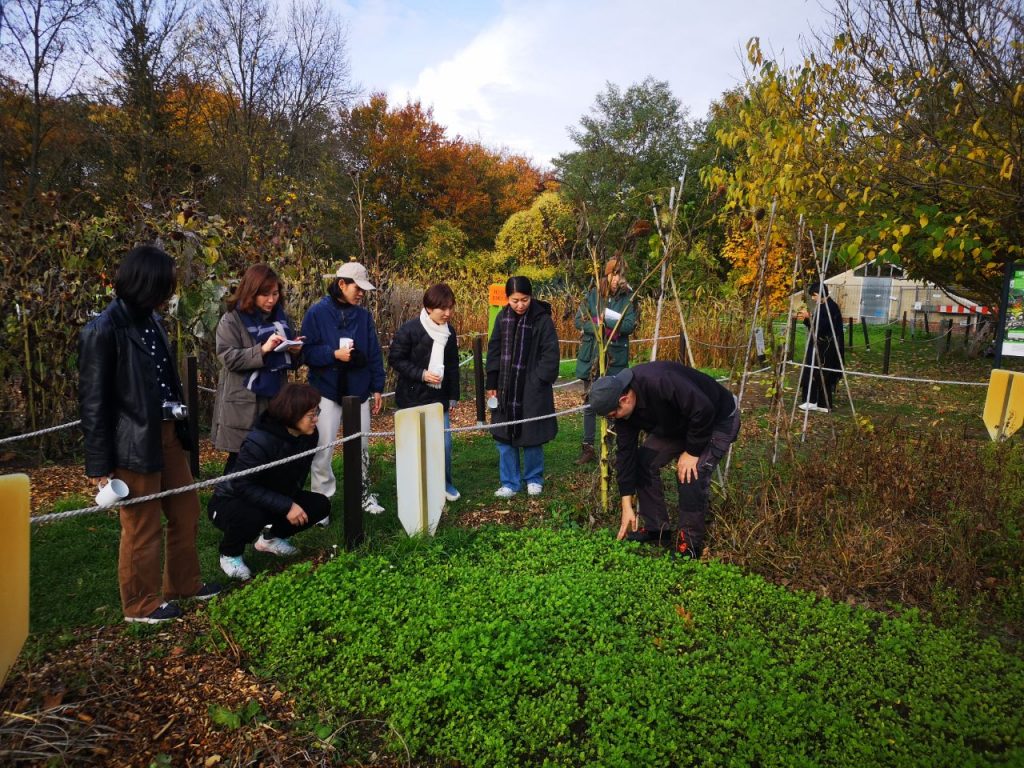
And so, the Kbean team was given a tour of the Weltacker/Global Field by experienced legume gardener Ekke – also part of the Global Bean team.
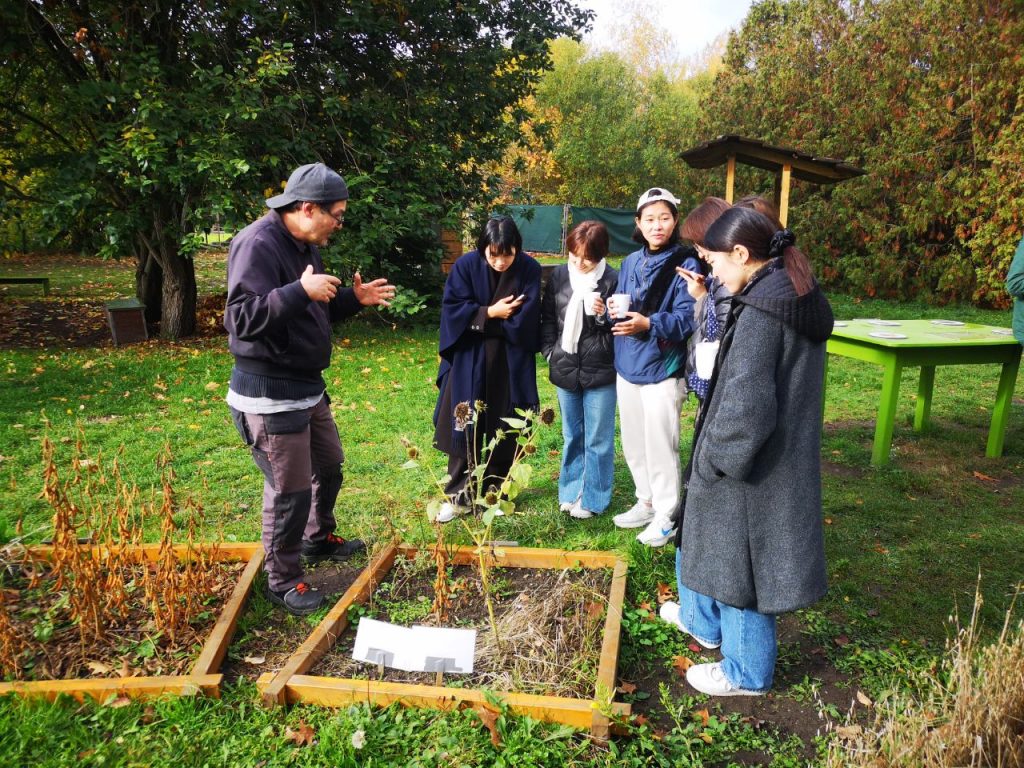
At the Flächenbüffet “Area Buffet”, one can see how much more arable land is needed for dishes like “sausages and lentils”, or “Spaghetti carbonara” or your morning oatmeal. Impressive is the difference in surface needed if those meals incorporate meat or other animal products – this is represented in area of soybean plants that is fed to animals – than for their vegetarian or vegan equivalents, where the soy is consumed directly or omitted altogether. A great way to visualize the relationship between what we see on our plate and the required arable land area behind it.
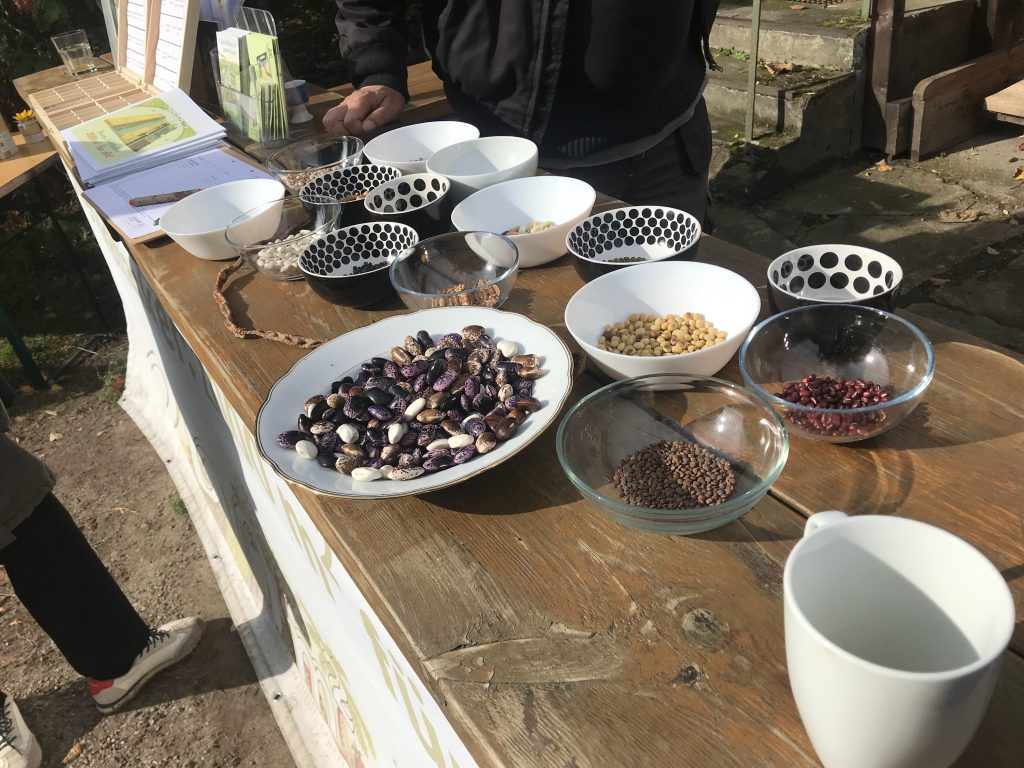
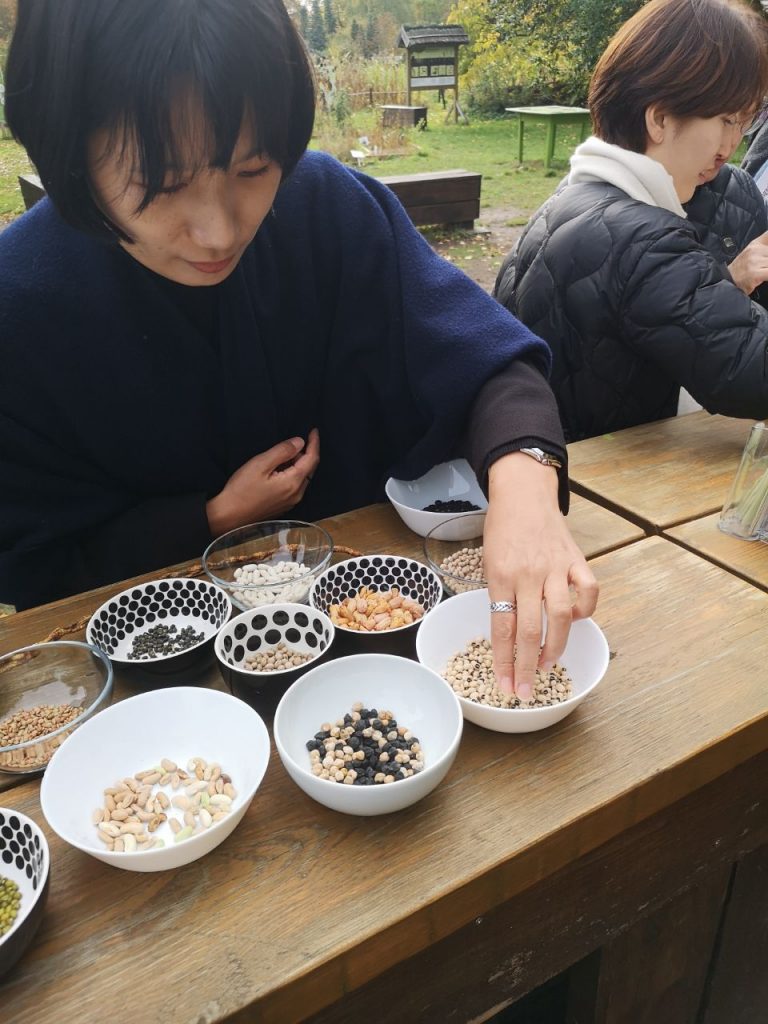
Since we got to discover 7 varieties of Korean beans, it just seemed logical to reciprocate with a display of western legume seed diversity!
Day 3: The market at the Winterfeldt place in Berlin.
After two weekdays full of discoveries for all of us, the KBean project team still had an exciting day in front of them with their booth at the Wittenberg Platz in Berlin!
Yuli, Kim Yeong along with Lisa from the Global Bean team and other Kbean team members were there as soon as the Market opened. As they all worked hard to set up the booth, they were surrounded by the convivial atmosphere of the first rays of morning light and the greetings of the other producers setting up their booths as well, before the arrival of the first customers.
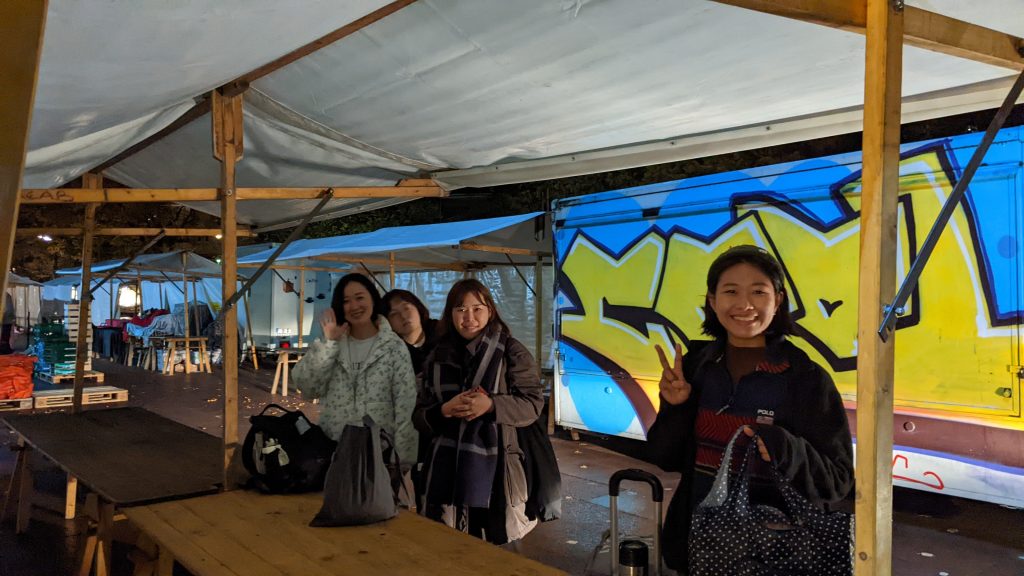
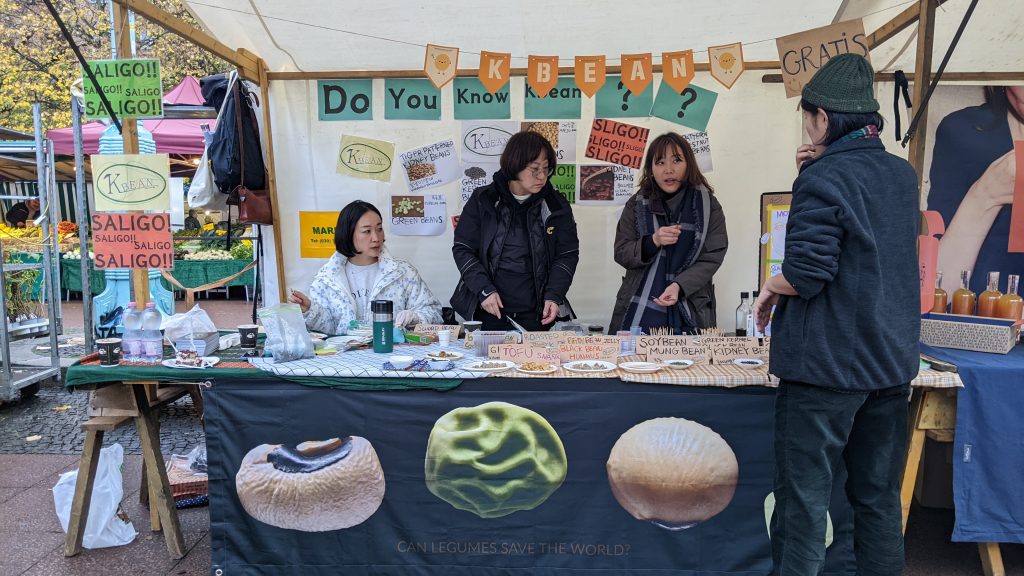
The stand displayed the 7 type of korean beans we got to know on previous days next to a wide array of -gratis!- legume snacks: Homemade Gochujang – red chili paste with fermented beans! – homemade black bean hummus, and many others. On the right side of the stand, Chef Omar from the Lebanese restaurant Cèdre Blanc was preparing Achura to warm visitors and show that yes, legumes can be used in desserts!
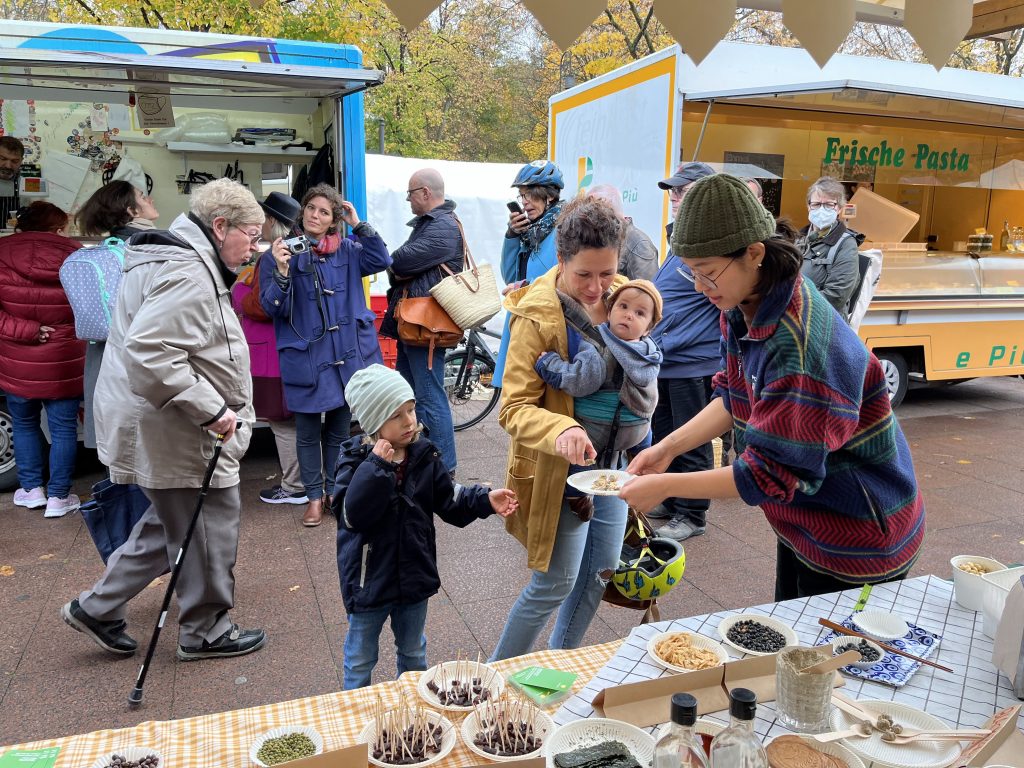
Visitors could also play a game, transferring beans from one container to the other with chopsticksas fast as possible – not that difficult for the German people used to eating with chopsticks in restaurants – and take part in a traditional korean game with beans. In that one, one had to get the beans as close as possible to the finish line!
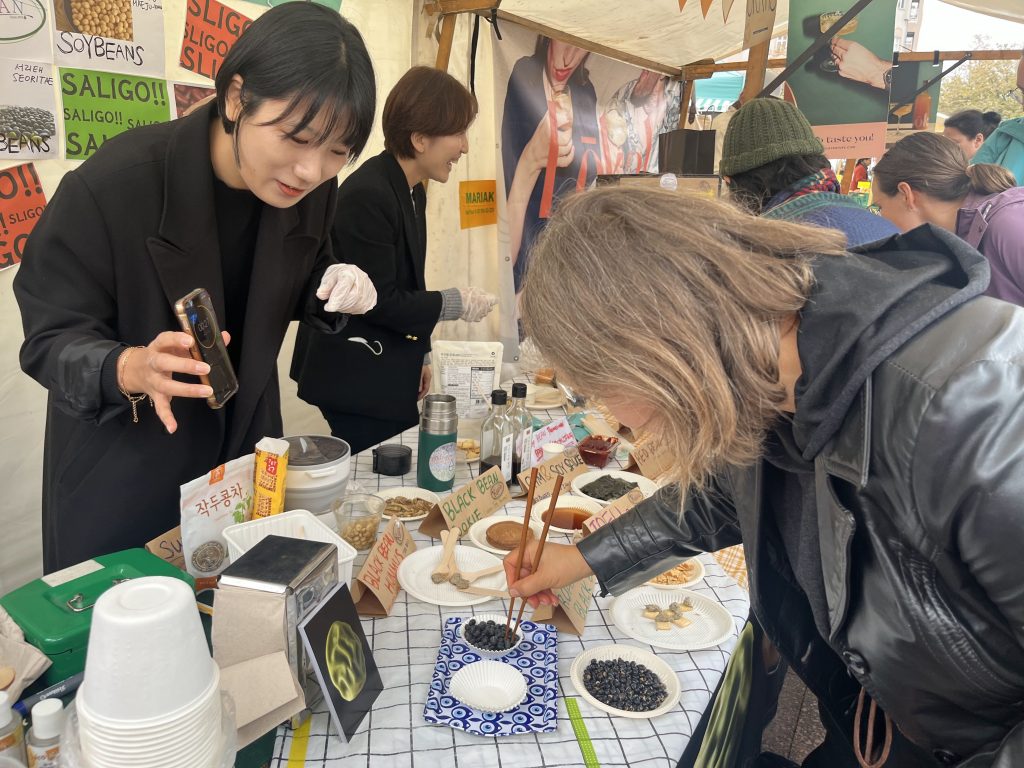
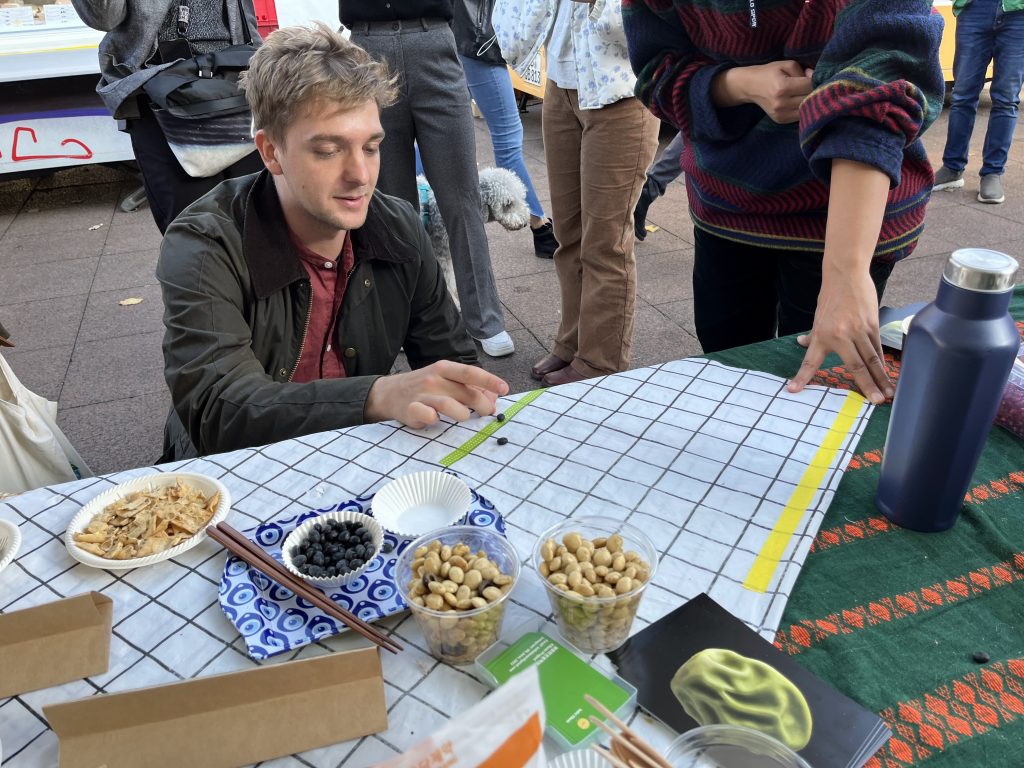
They were also invited to choose which one of the beans were their favourite, among those shown below.
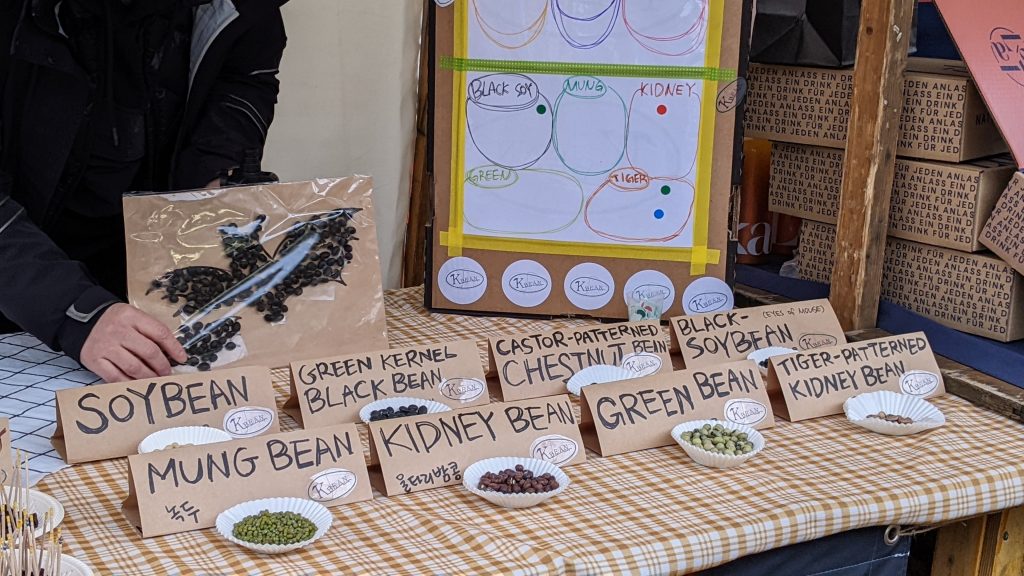
The winner: the Tiger bean!
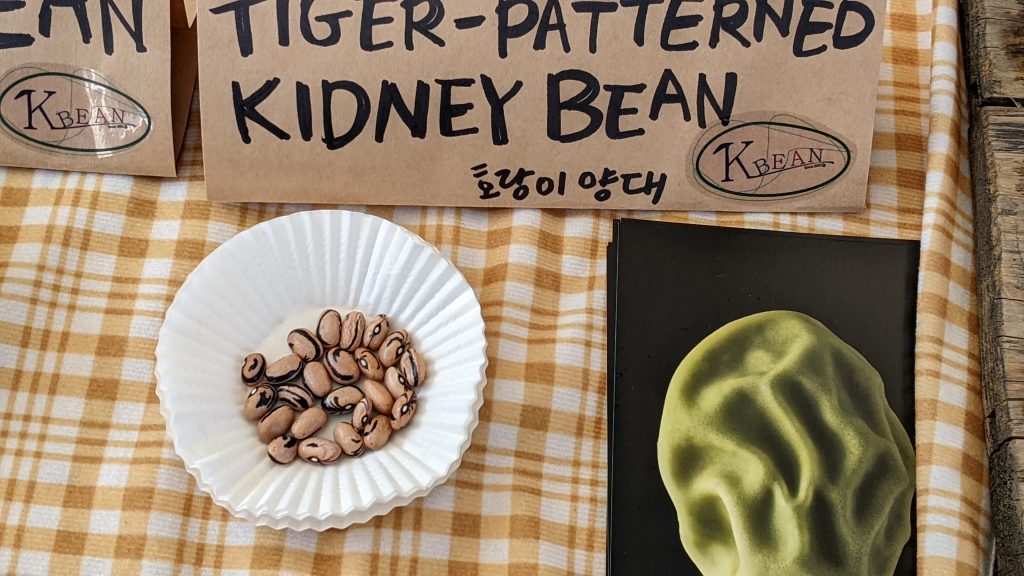
And finally, the Global Bean team, the Kbean team and many visitors lively and energetically shouted: Saligo Saligo Saligo! Let’s save the beans! Our health, and the planet!
